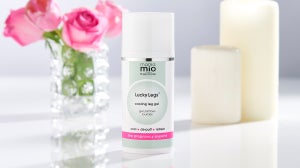We’ve all heard of the ‘pregnancy glow’, but what does it mean when your glow gets diverted en route, and instead a dark patch of pigmentation has developed on your top lip? Commonly named ‘The Mask of Pregnancy’, skin discolouration during pregnancy is not as daunting as its nickname suggests. In fact, dark patches are a harmless reaction between pregnancy hormones and the melanin in the skin.
Dark patches are also related to other skin changes during pregnancy, such as the Linea Nigra (the dark line that runs vertical down mamas’ bellies). What does skin discolouration mean? What will the pigmentation fade? How can you prevent this pigmentation from developing?
In this excerpt from Mama You’ve Got This, an honest guide to pregnancy, Melissa Schweiger Kleinman, offers pregnancy skin change advice and what mamas can do to prevent dark patches during pregnancy.

Why do I have darks patches on my face?
If you look in the mirror each morning hoping to see that illustrious pregnancy glow kick in, you might be a little surprised when instead the face looking back at you has dark patches on it. Don’t be alarmed, this is just what’s known as the “mask of pregnancy.” The medical term for this condition is melasma or chloasma and it’s a direct result of all of those lovely hormones coursing through your body.
The pregnancy hormones oestrogen and progesterone, that have so rapidly taken over your body, are reacting with the melanin in your skin, causing it to increase production. Hence the seemingly strange shaped splotches of darkness on your skin. If you’ve got moles or freckles, those will sometimes darken as well.
And just in case your body gets jealous, it too can receive some dark splotchy love in the form of darkened nipples and a long vertical line down your belly. Sometimes, your vulva even gets in on the act and can turn a few shades darker. That’s when the party really starts!
How can I stop skin discolouration during pregnancy?
So, now what to do if you’ve got this mask? It helps to know that in most cases, the dark patches will fade after pregnancy, but the best thing you can do to help prevent them in the first place or prevent them from multiplying is to wear broad-spectrum SPF of at least 30 every day. Better yet, keep out of the sun altogether.
When unprotected UV light interacts with the pregnancy hormones in your body, your skin gets blotches of pigment. Genetics play a role in the development of melasma or chloasma, but even so, don’t blame your mum for your mask. Rather, wear your SPF along with a wide-brimmed hat to ward off the splotches before they even appear.









